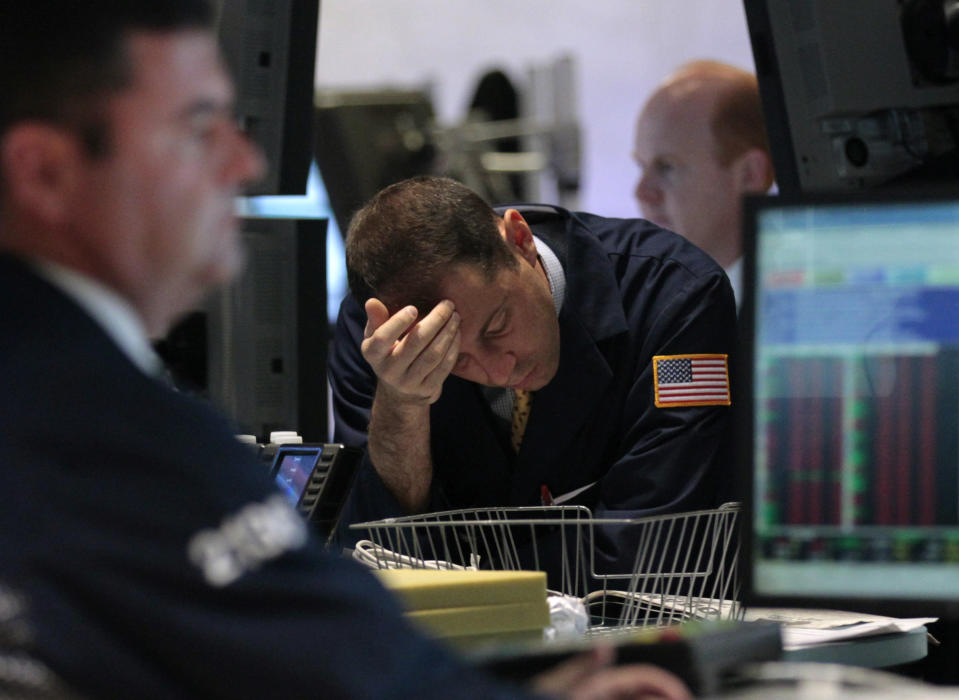History shows a U.S. recession will probably happen within 24 months
The fear-mongering number crunchers predicting a U.S. recession within the next 24 months have history on their side.
Since 1928, the S&P 500 Index (^GSPC) has fallen by more than 10% in 25 of the years before the start of a recession pointed out strategists at Goldman Sachs. In case you have lost track, the S&P 500 has slid 11% from its record high of 2,931 on Sept. 20. If an economic downturn begins in mid-2020, Goldman said historical data shows stock valuations would likely peak during the second half of 2019 and gradually decline into the recession.
The savings grace for investors is that a recession doesn’t mean one can’t make money on the long side. Since 1930, stocks have posted a median return of 35% during the past two years and 16% during the 12-months prior to hitting a pre-recession peak, Goldman noted.
Besides the historical data, there are numerous other signs in the market that indicate economic growth will slow drastically in coming months and stock prices could be further vulnerable to selling pressure.

The Financial Select Sector SPDR has shed 11% since the market’s highs on Oct. 1. While the 24% plunge in Goldman Sachs is more self-inflicted pain (IMBD scandal) than economic tell, the 17% decline in Bank of America doesn’t engender confidence in the economic outlook. Forward-looking sectors such as housing, transports, industrials and small-cap stocks are down double-digit percentages from Oct. 1, badly underperforming the S&P 500 and Dow Jones Industrial Average.
Meanwhile, Wall Street analysts continue to be in a race to slash their profit forecasts.
All 11 sectors of the S&P 500 have received a decrease in expected earnings growth in recent months, led by the utilities, materials, and industrials. Considering its global exposure, it’s no surprise the industrials sector has been among the hardest hit in terms of downward earnings estimate revisions. Earnings growth for the fourth quarter is seen at 14.5% versus 20.7% at the start of the quarter.
“Investors are worried that the cuts will go much further,” said Citigroup strategist Robert Buckland. Citigroup estimates that the market has priced in a 1% decline in earnings for 2019. Most on Wall Street expect about 8% earnings growth.
The upshot? Given how terrible market sentiment is at the moment, double-digit profit growth for the fourth quarter may seem like a gift from above when the numbers hit the newswires in late January. It’s unclear though if the S&P 500 will be down another 10% before that happens, however.
Brian Sozzi is an editor-at-large at Yahoo Finance. Follow him on Twitter @BrianSozzi
Read Yahoo Finance’s Exclusives:
Hasbro CEO: We will return to growth in 2019
Macy’s CEO: Mobile shopping is surging
Procter & Gamble CEO: We aren’t splitting up the company
Coca-Cola CEO: Why we aren’t getting into the alcohol business
Hershey CEO: We are having a game-changing year
Follow Yahoo Finance on Twitter, Facebook, Instagram, Flipboard, LinkedIn, and reddit.
